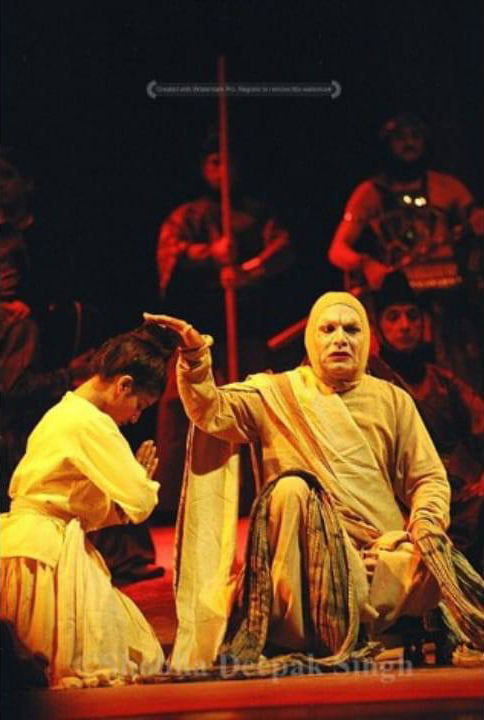Mudrarakshasa

Departing from the tropes of Sanskrit literature−from narratives of legends, love and the supernatural −Mudrarakshasa (The Signet Ring) becomes one of the first classical texts to engage with a semi-historical narrative. Written around the 7th century CE by Visakhadutta, Mudrarakshasa unfolds a political drama, which is part fiction and part history. The play narrates ‘intricate political moves and countermoves’ by the two protagonists, Chanakya, the chief advisor to Chandragupta Maurya and Rakshasa, the minister of the Nandas, plotting to avenge his master’s defeat by seizing the throne from Chandragupta. Chanakya, who is believed to be the author of the early Indian treatise on statecraft, the Arthashastra, aligns himself with Chandragupta Maurya in overthrowing the oppressive Nanda dynasty, thus setting grounds for the emperor’s imperial ambition. Unlike Kalidasa’s Shakuntalam, the inanimate state of the signet ring remains unaltered in Mudrarakshasa: the ‘mudra’ serving as the major object of identity and intervention, manipulating the nexus of political strategies, death plots and state affairs in the play. Mudrarashasa presents its linear narrative pivoting around the signet ring, which introduces a rational manipulation in the play text, contrary to a magical intervention, as in Shakuntala. Through the subtle use of the raudra and vira rasas, the play text creates binaries between vengeance and diplomacy, vices and virtues, materialist pragmatism and fallible humanity.
Excerpt from the play: Act III
Chanakya: “Vrishala! Authors of works on Politics speak of three forms of government in this world, that conducted by the king, i.e. autocratic, that conducted by the minister i.e. ministerial and that conducted by them both i.e. joint. Of these yours is the ministerial government. What have you to do with inquiring into the reason of a thing? It is we who mind it.” The king is offended. He turns away his face.
Image: Manohar Singh as Chanakya in Mudrarakshasa, part of Kaho Katha Khajuraho, directed by Amal Allana, Theatre and Television Associates, 2000.
